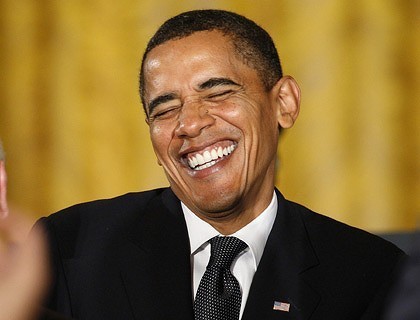 Scooped by Jarrad Winter - KUFFAR NEWS
Scooped by Jarrad Winter - KUFFAR NEWS
-----
In the words of Congressman Pete King, "If you're going to take this issue [Iran] seriously, the one person you have to consult with and read his writings is Reza Kahlili"
-----
(Reza Kahlili) Iran could announce a temporary halt to uranium enrichment before next month’s U.S. election in a move to save Barack Obama’s presidency, a source affiliated with high Iranian officials said today.
The source, who remains anonymous for security reasons, said a representative of the Obama administration engaged in secret negotiations yesterday with a representative of Iranian Supreme Leader Ayatollah Ali Khamenei.
The Obama representative has urged the Iranian leader to announce a halt to enrichment, even if temporary, before the Nov. 6 election, promising removal of some sanctions.
The source said the Obama representative warned that a Mitt Romney presidency would change the U.S. relationship with Iran regarding its nuclear program.
The U.S. representative reminded the Iranians that President Obama has stood in front of Israel, preventing the Jewish state from attacking Iran over its illicit nuclear arms policy.
Yesterday’s meeting, which took place in Doha, Qatar, was coordinated by the Qatar monarchy, whose members attended at the request of the Obama administration.
Ali Akbar Velayati, the former Iranian foreign minister and current close adviser to the supreme leader on international affairs, secretly traveled to Qatar for the meeting. Velayati is wanted by Argentina for the Jewish community center bombing in Buenos Aires in 1994 that killed 85 people.
The Obama representative urged Velayati to announce a halt, even if it is only for a week or two, to uranium enrichment prior to the U.S. election, according to the source. The U.S. representative promised the Obama administration quickly would remove some sanctions on the Iranian central bank and oil industry, with further collaboration after the election, the source said.
Yesterday’s secret meeting took place even as hundreds of merchants in Tehran marched on parliament to protest the collapsing Iranian currency and the Islamic regime’s financial support for the besieged Syrian government of Bashar al-Assad.
Yesterday’s secret meeting took place even as hundreds of merchants in Tehran marched on parliament to protest the collapsing Iranian currency and the Islamic regime’s financial support for the besieged Syrian government of Bashar al-Assad.
Riot police violently clamped down on black-market money changers while merchants in the sprawling bazaar closed their shops during the protest. With inflation soaring, Iranian merchants can’t sell their goods, for fear they won’t be able to restock their shelves.
Yesterday’s negotiation was an extension of secret negotiations begun in early January when, according to Iranian officials and a report by Fars News Agency, Obama requested collaboration with the Islamic regime through three different channels. The channels were a letter to the supreme leader, a message to the Iranian U.N. delegate and a direct message through Swiss Ambassador Livia Leu Agosti in Tehran in a meeting with Iranian Foreign Ministry officials, who quoted a message from Obama.
Yesterday’s negotiation was an extension of secret negotiations begun in early January when, according to Iranian officials and a report by Fars News Agency, Obama requested collaboration with the Islamic regime through three different channels. The channels were a letter to the supreme leader, a message to the Iranian U.N. delegate and a direct message through Swiss Ambassador Livia Leu Agosti in Tehran in a meeting with Iranian Foreign Ministry officials, who quoted a message from Obama.
The Obama message said: “I didn’t want to impose sanctions on your central bank, but I had no options but to approve it since a Congress majority had approved the decision.”
A unanimous U.S. Senate vote had approved strong sanctions against the Iranian central bank and oil industry, but with a veto threat by the president, the effective date of the implementation of the sanctions was delayed to July 1.
U.S. Secretary of State Hillary Clinton said yesterday in Kazakhstan that the sanctions can be lifted immediately if the regime meets its nuclear obligations. She blamed its leaders for the financial crisis and spreading protests and said U.S. policy only seeks to convince the regime to seriously negotiate over its uranium enrichment program.
The Islamic leaders face increasing challenges with the Iranian people, a majority of whom resent the regime and are once again gathering energy to confront it with the hope of achieving regime change and freedom and democracy.
Fox News has reported that Iranian authorities dispatched riot police to key locations in Tehran just within the last 24 hours because of the turmoil over the plunging value of the nation’s currency. Many shop owners were closed the day before, and trash bins were burned as citizens and security forces clashed. More than a dozen were “detained.”
In 2009, when Iranians came out by the millions demanding change and urging Obama to support them, the administration instead negotiated with the regime in the hope of reaching a solution over Iran’s nuclear program. Though the Islamic leaders promised to collaborate with the president once the masses were fully suppressed, the Iranian leaders announced that not only was the offer no longer acceptable but they had further progressed with their nuclear program by reaching a milestone of enriching uranium to the 20-percent level.
The Aug. 30 IAEA report showed Iran has doubled the number of centrifuges at its Fordow facility deep within a mountain to more than 2,000, and work continues unabated at the 20-percent enrichment level. Meanwhile, more than 10,000 centrifuges at the Natanz facility are enriching to the 3.5-percent level, with enough low-enriched uranium for six nuclear bombs should Iran decide to enrich further.
